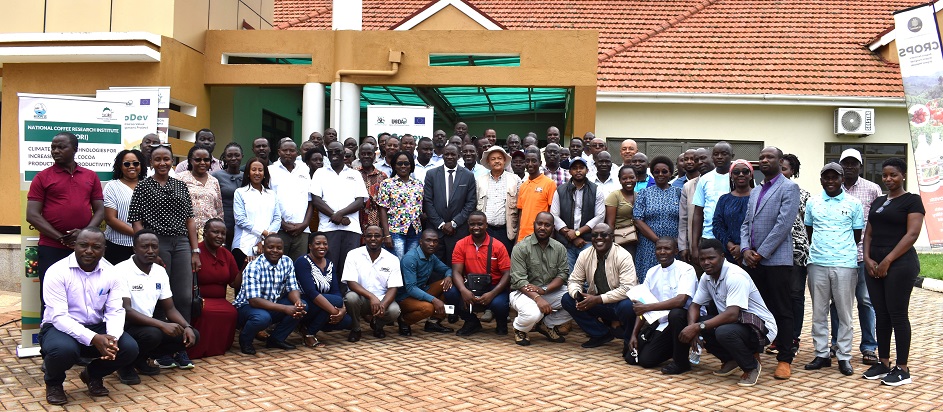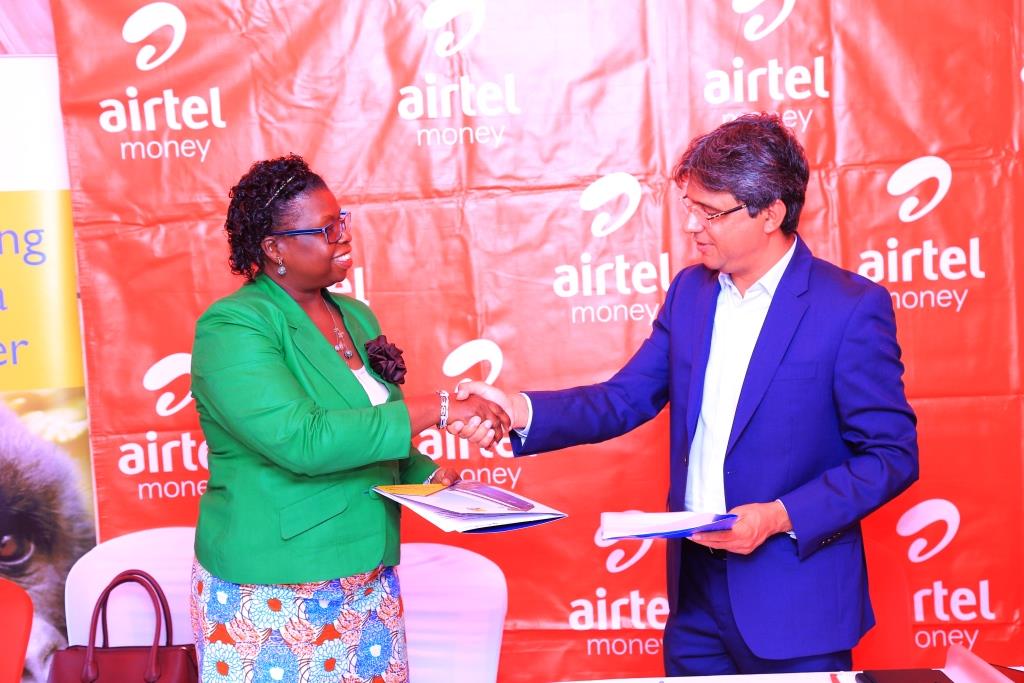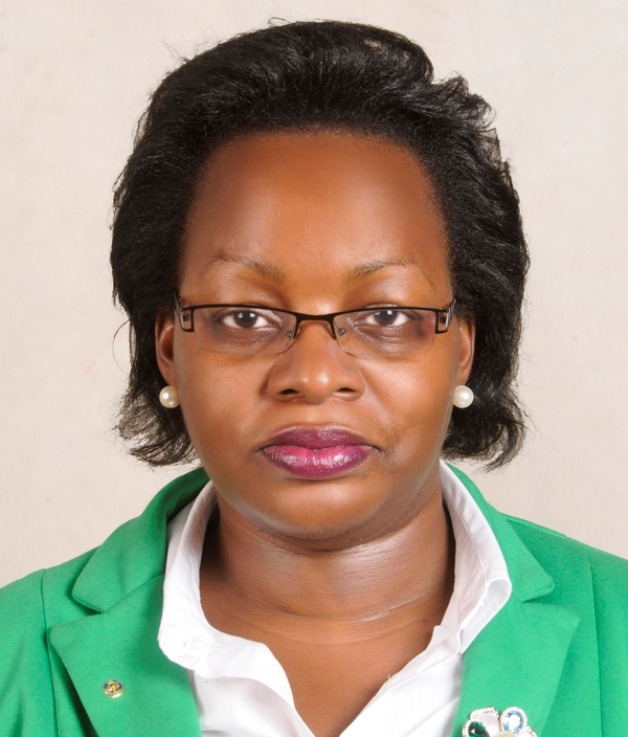Some of the beneficiaries of the CoCoDev Matching Grant Scheme in a group photo
The National Coffee Roadmap which aims to produce 20 million bags by 2030 has received a big boost from a Shs10.8bn Coffee and Cocoa Value Chain Development Project (CoCoDev) Matching Grant Scheme that will support 134 commercial farmers with between 10 to 50 acres of land plant 3,236 acres of coffee and 442 acres of cocoa.
The revelation was made by Dr. Gerald Kyalo, the Director Development Services at UCDA, who represented the Authority’s Managing Director at the opening ceremony of the Matching Grant Scheme Training for the 134 CoCoDev grant winners at the National Coffee Research Institute in Mukono on September 2, 2024.
The CoCoDev project, which is funded by the European Union, is implemented by UCDA with one of its objectives being enhancement of commercial coffee and cocoa production and productivity in Uganda.
Dr. Kyalo said UCDA, through CoCoDev, is seeking to expand the production of coffee and cocoa outside the traditional growing areas.
”Many of you grantees are pioneers in these non-traditional coffee and cocoa growing areas,” he said.
Selection process
Dr. Kyalo says the process to arrive at the successful applicants started in August 2023 with a call for expression of interest, to which over 1,200 coffee and cocoa producers responded.
“Those who passed through the Expression of interest stage numbered 967 and all were invited to submit full applications. The number of applications received was 757. These were then subjected to a desk evaluation, from which 370 passed to the next stage and submitted to the National Authorizing Office and the European Union, for approval,” said Kyalo, adding that the successful applicants were approved on August 23, 2024.
He noted that 118 applicants are on the reserve list subject to the provision of funds.
He says all the grantees are now recognized as “commercial” coffee and cocoa farmers because “each plan to establish, or, further expand their coffee or cocoa plantation, by at least 10 to 50 acres”.
He says each of these farm plots have already been verified as part of the evaluation process.
Increasing coffee and cocoa acreage
“The 134 grantees will add 3,236 acres of coffee to the Uganda production base and 442 acres of cocoa. In three years’ time, as these new trees reach full production, we cannot predict what the price might be, but at the current global market prices, we can expect these grantees to be adding 1,456 metric tonnes of coffee to the market with an estimated value of US$4.95m and 2,228 metric tonnes of cocoa” said Kyalo.
Under pillar two of The National Coffee Roadmap launched by President Yoweri Museveni in 2017, there is a call for increasing coffee production through promoting coffee production on large underutilized tracts of land.
The grantees therefore make a significant contribution towards the 20m bag production target as outlined in the the Roadmap.
Dr. Kyalo urged the grantees to get the planting materials from certified nursery operators and thanked the EU for their generous contribution to the development of agriculture in Uganda.
Speaking at the same event, Daniel Kisekka, the Technical Advisor for the CoCoDev project, said the matching grant is a reimbursement scheme designed to support commercial coffee and cocoa farmers.
He added that the grantees must have capacity to first use their own money in setting up the coffee/cocoa plantation. He said the reimbursement is 100%.
“Land must also be free from encumbrances. That’s why we carried out field verification to ensure that you’ve legal ownership of the land for which you are fronting for production. The land must also be within the same jurisdiction/district,” said Kisekka.
“We are looking at reimbursing Shs3.2m per acre for a minimum of 10 acres and a maximum of 50 acres. Based on the cost margins, we shall reimburse Shs32m for someone with 10 acres and Shs60.8m for a farmer with 19 acres,” he said, adding adding that someone with 50 acres will receive Shs160m in reimbursement.
The Shs3.2m reimbursement covers purchase of coffee/cocoa seedlings, land opening, digging and back-filling of holes, planting and climate change adaptation (planting of bananas, shade trees, cover crops etc).







Indeed there is dire need for the EU to float proposals for grants to support Avocado commercial farming
There are those certified by UCDA and certified by FAO . Which ones do we consider?
I have big nursery bed which supplies masindi and kiryandongo
You talked about certified nursery beds. How can a farmer differentiate certified and non certified? Can you share a list of certified ones. I am in Kyankwanzi and interested commercial coffee farming.
The nursery must be UCDA certified. The operator must have a UCDA certificate.
This z a great way forward for our economy
Wonderful development